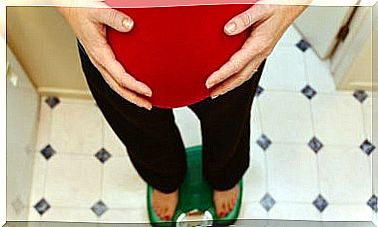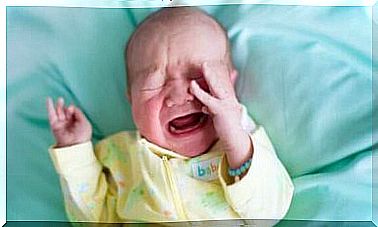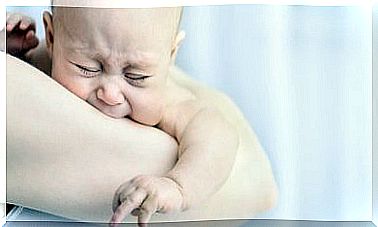The Most Common Dental Problems In Children
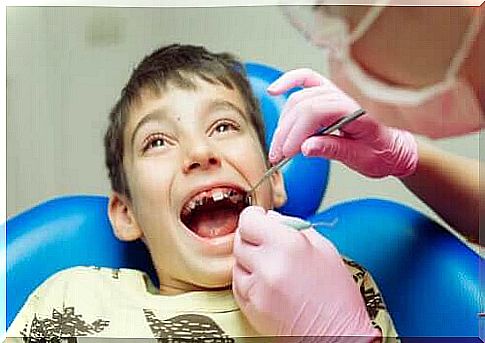
Dental problems in children can occur at an early age and even be the basis for various diseases. In this article, we will go through the most common dental problems in children and what you can do to avoid them.
Although dental problems are very common, they can almost always be prevented. When they appear, they change the normal functions of the mouth, and can affect how the child chews, speaks and swallows. Below we will tell you about the most common dental problems in children, as well as why they occur and different treatments. We also want to remind you of what you can do to keep your baby’s mouth as healthy as possible.
What are the most common dental problems in children?
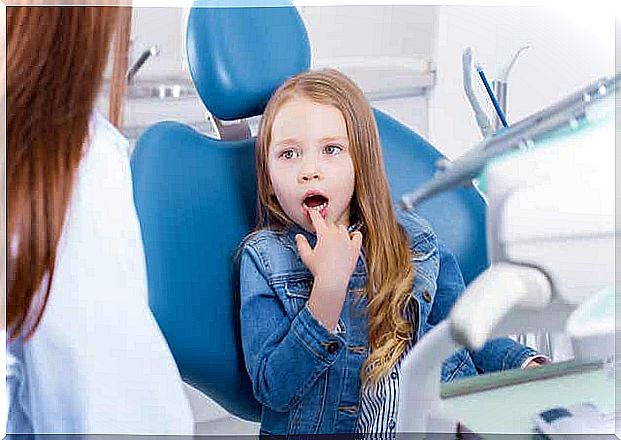
Tooth decay
Cavities are one of the most common dental problems in children. When you get a hole, you have lost mineral tissue in the tooth due to the acids produced by the bacteria in the mouth. At the beginning of the condition, you can see small white spots on the tooth surface. As the cavities then develop, the color changes to black or brown and the tissue loss forms caries or cavities in the teeth.
The loss of the minerals that make up the tooth thus occurs due to the acids that the bacteria in the mouth produce when fermenting sugar in the diet. Poor oral hygiene and high consumption of sugar thus make children more susceptible to this disease.
There is a special form of caries in younger children which is called “early signs of caries (ECC)” or which is perhaps better known as “baby caries”. This condition is associated with frequent consumption of sweetened condensed milk and lack of hygiene after ingestion. How long the sugar stays on the surface of the tooth matters. The longer it stays, the faster it encourages the onset of caries. This is especially true of the front teeth.
Consequences of caries in children
The occurrence of caries and its progression due to lack of treatment leads to various complications in children:
- Pain and discomfort : As the depth of the cavity increases, it approaches the dental pulp, where the nerves are located, which generates sensitivity and pain.
- Tooth damage and tooth loss : When caries continues to develop, the tooth wears out, and it can even break the tooth. This can simultaneously cause movement in nearby teeth, bite defects and difficulty biting the jaws.
- Infections : Caries can be complicated by infection in the tooth, or infection in hard or soft tissues surrounding the affected area.
- Damage to the permanent tooth : When caries occurs in a baby tooth, it can affect the permanent tooth underneath.
- Low self-esteem and social problems : Broken and stained teeth can be a reason for a child to be irritated, which can result in low self-esteem.
Treatments for cavities in the teeth
The type of treatment to treat caries depends on the size and development time. Early caries can be treated with therapeutic application of fluoride.
If the caries has progressed to such an extent that holes and tissue loss have occurred, cleaning and repair with fillings is necessary. Regardless of the type of cavities, it is always necessary to treat them in order to slow down the progress and avoid future complications.
Dental trauma is one of the most common dental problems in children
A tooth that has been subjected to trauma, such as shocks or blows, is also a common dental problem in children. Trauma can easily occur when young children begin to learn to walk and in recent years has also been associated with accidents during play or sports. The teeth that are most often affected are the upper front teeth because they are most unprotected.
Trauma can affect both baby teeth and permanent teeth. The dental crown can be completely or partially broken off, moved out of place or even fall out of the mouth.
What happens next depends on the type of tooth that is affected. But in case of a blow to the mouth, it is always best to go to the dentist immediately. If the tooth comes loose completely, you should find it out and put it in either milk or physiological saline solution and also take it to the dentist.
The dentist examines the affected tissues and determines the appropriate treatment. Treatments can range from a simple placement of fluoride and subsequent checks, restoration or filling, root filling or even re-implantation of the tooth in its place and immobilizing it with braces.
As we mentioned, it is important that you go to the dentist as soon as possible because the prognosis gets better the faster you act.
Bed bugs
Improperly adjusted teeth and complications of normal closing of the jaws are common dental problems in children. Observing the position of the teeth when they appear and the relationship between the upper teeth and the lower teeth when the child bites together is important to detect any abnormalities in a child’s bite.
Home monitoring and regular dental consultations help to detect these problems in time. The earlier they are treated, the easier and less difficult the treatment is usually.
This type of dental problem in children can occur for several reasons:
- Occurrence of dysfunctional habits such as the child sucking on the fingers, prolonged use of a pacifier or bottle, and breathing only through the mouth
- Absence or premature loss of baby teeth
- Hereditary and genetic factors
- Bruxism
How to treat bite defects depends on the type and degree of the defect, the age of the child, and the type of teeth in the mouth. Depending on individual cases, bite defects can be corrected with the help of braces, fixed braces with brackets or invisible braces.
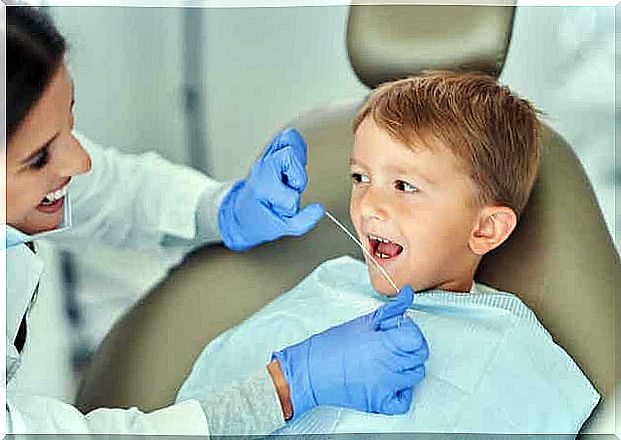
Gingivitis
The presence of bacterial plaque around the tooth can lead to inflammation of the gums. The gums then turn red, bleed easily, hurt and the child may also have bad breath that occurs in the mouth. The cause of this dental problem in children is poor oral hygiene. Using a toothbrush and floss, as well as consulting a pediatric dentist is usually enough to treat this condition.
How to avoid the most common dental problems in children?
Good oral hygiene and healthy behavior help keep your mouth healthy. Here are some tips to prevent the most common dental problems in children:
- Maintain good oral hygiene : Brush children’s teeth two to three times a day with a soft toothbrush and toothpaste with flour. Supplement this with daily dental floss and, if your dentist recommends it, with mouthwash.
- Avoid caries-producing foods : The child should reduce or avoid consuming foods high in sugar. It is best for children to have a varied diet rich in different nutrients.
- Eliminate harmful habits : When it comes to children who suck on their fingers, bite on their nails, breathe through their mouth or use a pacifier or bottle longer than recommended, you can seek help to get the child to stop these habits that are harmful to the mouth.
- Consult your dentist : Regular and prompt visits to the dentist will help maintain a healthy mouth. The dentist can detect any problems in time and also offer important advice on oral care.
The most common dental problems in children can be avoided
Dental problems in children can occur from an early age. There are several oral diseases that are common among children. A healthy mouth is necessary for the child to be able to develop correctly. Therefore, adequate oral hygiene, healthy practices and consultations with a dentist will help keep your child’s smile healthy.
https://youaremom.com/health/good-habits/personal-hygiene/dental-problems-children/
